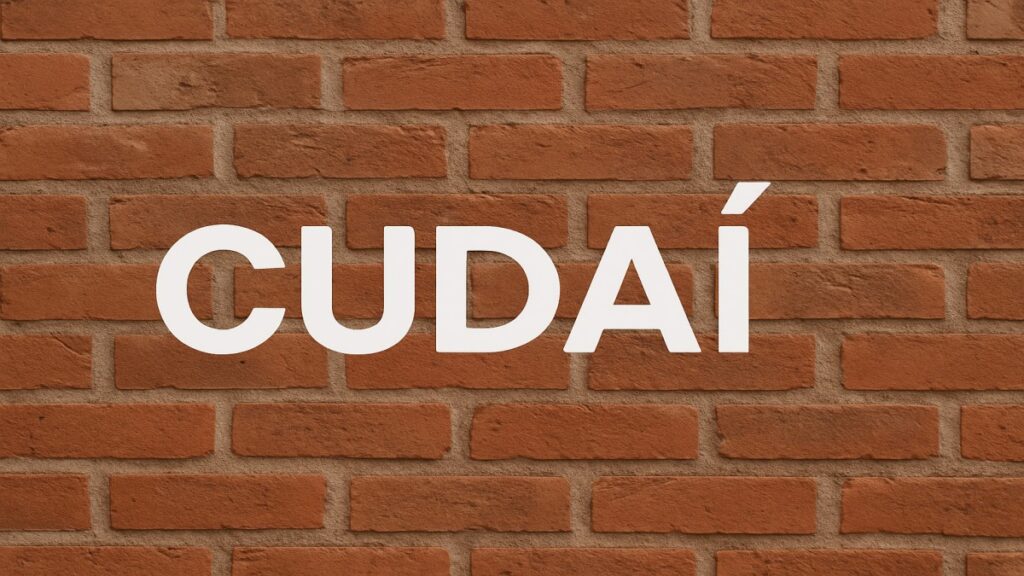Introduction to Cudai
Have you come across the term Cudai and wondered what it really means? While it might sound like a word from a distant culture or an emerging trend, Cudai holds deep and layered significance representing a concept of adaptability, understanding, and mutual respect. In a fast-evolving world where change is constant and conflict common, cudai might just be the mindset shift we all need.
The Origins of Cudai
Linguistically, “Cudai” does not stem from a widely recognized origin—yet it’s increasingly being adopted as a term to describe an approach or philosophy centered on adaptive understanding. Whether coined from modern usage or evolved from cultural interpretations, cudai captures the essence of harmonious adaptation.
Culturally, it draws from various traditions that emphasize unity through flexibility—blending East Asian philosophy with modern psychological thinking.
Cudai in Different Contexts
Cudai isn’t just one thing. It’s a lens through which we can view our actions, relationships, and decisions. It can be a mindset, a way of life, or even a leadership style. Some use it to describe a personal growth journey. Others associate it with emotional intelligence in action.
Philosophical Interpretations of Cudai
In Eastern philosophies like Taoism or Buddhism, adaptability and flowing with the nature of life are central themes. Cudai echoes those teachings—advocating harmony through change.
In Western thought, you might compare it to Stoic acceptance or even modern mindfulness—being present, aware, and adaptable.
Cudai in Literature and Art
Artistic expression often reflects the principles of cudai. In poetry, it appears as a shift in voice or tone to mirror understanding. In visual art, it shows through transitions, contrasts, and harmony within chaos. Cudai thrives where empathy meets creativity.
The Psychological Power of Cudai
What makes cudai truly transformative is its psychological impact. It builds emotional intelligence—the ability to understand and manage your emotions while also recognizing others’. Cudai encourages you to listen actively, stay present, and respond rather than react.
It enhances mental flexibility—helping you adjust your thoughts and behaviors when new information or perspectives arise.
Cudai in Relationships
Ever had a disagreement where someone just got you? That’s cudai in action. It’s the magic of adjusting not just your words, but your tone, your body language, and even your assumptions to create connection instead of conflict.
It turns arguments into dialogues and strengthens bonds by making space for empathy and compromise.
Cudai in Education
Teachers who practice cudai go beyond textbooks. They understand the emotional landscape of students. They adapt lessons to different learning styles. They listen more than they speak. The result? Students feel heard, respected, and inspired to grow.
Societal Applications of Cudai
Imagine if cudai wasn’t just personal—but collective. If entire communities embraced it, we’d see less division and more dialogue. Differences wouldn’t divide us; they’d invite understanding.
Neighborhoods would become more inclusive. Public discourse would become more thoughtful. People would feel safe being themselves.
Conclusion
Cudai may be a simple word, but it carries powerful meaning. It’s about adapting without losing yourself. Understanding without compromising your values. Leading with both heart and strategy. In a noisy world full of conflict and change, cudai offers a clear path to peace—both within and around us.
Whether in your relationships, your work, or your community, practicing cudai can turn everyday interactions into opportunities for connection, growth, and transformation.
FAQs
1. What does cudai mean?
Cudai refers to a mindset or philosophy centered on adaptability, empathy, and mutual understanding in various aspects of life.
2. How is cudai used in personal growth?
It encourages emotional intelligence, openness to change, and the ability to learn from diverse perspectives, fostering self-awareness and resilience.
3. Can cudai improve workplace culture?
Yes. By promoting flexibility, inclusivity, and empathy, cudai enhances teamwork, innovation, and communication.
4. Is cudai a modern or ancient concept?
While the term may be modern, its principles are rooted in ancient philosophies and cross-cultural wisdom.
5. How can I practice cudai daily?
Be open to feedback, adjust your responses based on others’ needs, and approach situations with curiosity rather than judgment.







